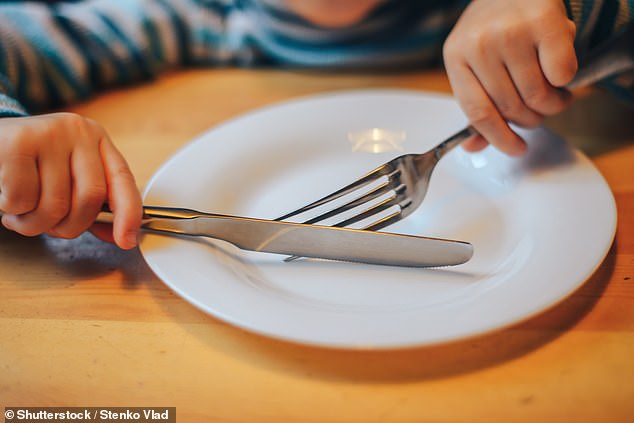- Latest government figures show rising absolute poverty figures
- This happened despite cost of living payments intended to ease the burden.
- Charity Turn2us has called the rise in the number of poor children a ‘national crisis’
<!–
<!–
<!– <!–
<!–
<!–
<!–
Around 600,000 low-income people fell into absolute poverty in 2023 despite government cost-of-living support payments – half of whom were children.
In response to soaring energy bills and the high cost of living, the government began making fixed payments to millions of households from 2022.
But latest figures from the Department for Work and Pensions (DWP) show 600,000 people fell into absolute poverty in 2023, including 300,000 children.
Absolute poverty is when a person is unable to pay for basic necessities such as food, shelter and other bills.
New DWP figures show there were 12 million people in absolute poverty after paying their housing costs in 2023, compared to 11.4 million in 2022.

Inexcusable: half of people living in absolute poverty are children, government figures show
The number of children living in absolute poverty increased from 3.3 million to 3.6 million over the same period.
Government cost of living assistance included the cost of living payment, worth £650 per year, later increased to £900.
Other support was available such as Disability Cost of Living Allowance (£150), Cost of Living Allowance for Pensioners (£300), reductions on utility bills energy of £400 and council tax reductions of £150 for those in bands A to D.
But many charities have warned the government that these payments will not be enough to stop many people falling into poverty.
Claire Atchia McMaster, director of revenue and external affairs at anti-poverty charity Turn2us, said: “The latest rise in child poverty rates in the UK should be treated as a national emergency. In a country as wealthy as ours, it is unacceptable that millions of children are deprived of essentials like food and clothing, blocking their path to success.
“We echo calls for urgent action to address this crisis. It is imperative to invest in policies that directly support low-income families, such as increasing support through Universal Credit and removing punitive policies, including the two-child limit.
Meghan Meek-O’Connor, senior policy advisor on child poverty at Save the Children UK, said: “These shocking figures should be an urgent wake-up call to us all, particularly the UK government: we are not We can’t continue like this. There is no reason why children should be deprived of food, heat, toys or beds.
The DWP said that without cost of living support, the total number of low-income people living in poverty would have reached 13.3 million in 2023, 1.3 million more than before.
Secretary of State for Work and Pensions Mel Stride said: “I know the last few years have been difficult, with the aftershocks of Covid and the war in Ukraine driving up inflation and pressures on the cost of living.
“This is exactly why we stepped in with the largest cost of living scheme in Europe, worth an average of £3,800 per household, and this unprecedented support has prevented 1.3 million people from falling into poverty in 2022/23.”
